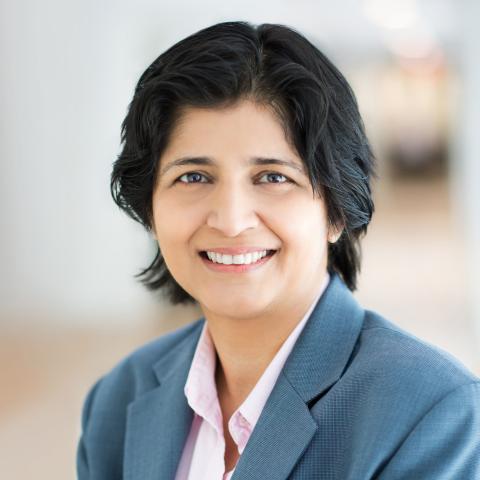Two days after U.S. Secretary of State Hillary Clinton asked India to play a greater role and stated that America viewed Indian leadership in South and Central Asia as being critically important," Pakistan's Prime Minister Yusuf Raza Gilani responded by asserting that there was no need for a "chaudhry [chieftain]" in the region and Foreign Minister Hina Rabbani Khar "asserted that Pakistan would resist "Indian hegemony."
This knee-jerk reaction to any attempt at labeling India a big power and tying it into Pakistan's fear of so-called Indian hegemonic ambitions is consistent Pakistani policy. As I argue in my book, Explaining Pakistan's Foreign Policy: Escaping India, statements such as these can only be understood if we realize that at the core of Pakistan's security and foreign policy lies the desire for parity with India.
It may be a disturbing trend for those who hope that Pakistan will become a stable democracy. This is because, even today, Pakistan's foreign policy seems to be dominated by its historic refusal to accept India as being bigger or more powerful. While this policy may have been even partly acceptable during the 1950s-60s, it seems unrealistic today, with India's fast economic growth and Pakistan lagging behind. How is it possible that Pakistan will achieve today what it could not achieve when the gap was closer?
Pakistan's leaders have always perceived India as a hegemony-seeking neighbor and believed that it is only when Pakistan achieves military parity with India will it be able to resolve all issues, including Kashmir. In 1954, then Pakistani Prime Minister Muhammad Ali Bogra stated, "When there is more equality of military strength [between India and Pakistan], then I am sure that there will be a greater chance of settlement." In an interview in January 1980 General Zia ul Haq, head of Pakistan's army and military ruler from 1977-1988, said that Pakistan would like "equality" to be the "determining factor" in any India-Pakistan relationship. In March 2009, Pakistani Prime Minister Gilani stated that any internal instability in Pakistan could prompt an Indian attack on Pakistan. Prime Minister Gilani stated: "When seen with the widening force differential between ours and Indian armed forces, it explains to us New Delhi's emboldened posture and its urge to find space for a conventional war."
This desire for parity with India led Pakistan's leaders to seek allies who would provide aid and assistance. Pakistan has always seen the United States as the ally who would provide assistance to help Pakistan gain parity with India, and ensure its safety and integrity against any Indian attack. Soon after the end of the 1965 war, during a discussion with American Ambassador McConaughy, then Pakistani Foreign Minister Zulfikar Ali Bhutto insisted that Pakistan had proved this equality in the 1965 war and now it was incumbent upon India to recognize this equal status.
In a discussion with American embassy officials in January 1972 then head of Pakistan's Army Lt. Gen. Gul Hasan asked for American aid in order to maintain the army "at pre-war size." When asked by the Americans if this would be possible, keeping in mind both the reduction in size of the Pakistani territory and elimination of the need to now maintain a force in East Pakistan, Gul Hasan's answer was that "a credible force would still be needed to serve as deterrent against any hostile intentions by India."
Right from 1947, Pakistan's leaders, in addition to seeking American support, have viewed any close ties between India and U.S. as antithetical to Pakistan's interests. During President Eisenhower's trip to Pakistan in December 1959, General Ayub tried to impress upon his American counterpart that America should not provide any aid to India, because "Nehru still wants Pakistan to remain weak while India builds its strength."
During his visit to South Asia in May 1961, Vice President Lyndon Johnson asked Prime Minister Nehru to extend his leadership to other areas in Southeast Asia." Pakistan's government issued a protest in response. A few days later, while on his way to Washington, General Ayub stated, "if India became too powerful her smaller Asian neighbors would have to seek China's protection and that China would respond favorably to such a move." This has been a constant theme in Pakistan's relations with the U.S. Every time the U.S. tilts towards India or applies pressure on Pakistan, Pakistan reiterates its close ties with China. Soon after the killing of Osama Bin Laden in early May 2011, Prime Minister Gilani "visited China in attempt to demonstrate that Pakistan had a strong ally who would help build Pakistan.
At the start of President Carter's term, according to Secretary of State Henry Kissinger, the focus of the administration's policy was one of building ties with "regional influentials," and in South Asia that meant India. Hence, Secretary Clinton's speech urging India to play its role in Asia-Pacific is not a new policy. It comes in a long line of statements and policies held by successive American administrations.
Pakistan desires parity with a much larger neighbor draining most of its resources without providing the security Pakistanis crave. At some time, Pakistan has to decide whether what has not happened in 64 years is still possible today. There were people in Pakistan during the 1950s-60s who did not mind American hegemony as long as it was not Indian. Today, there are those who are fine with Chinese hegemony, but not Indian.
What Pakistan's leaders fail to acknowledge is that India is the major power in South Asia. Other countries in South Asia may often resent Big Brother India and U.S. and India may have differing views on many issues. However, India's size, economic power, military power and soft power will ensure that it is treated as a big power, both in South Asia and globally.


















